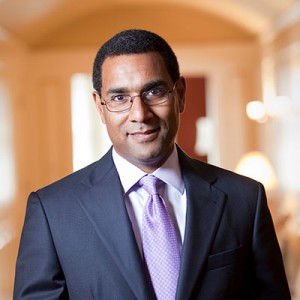
Whenever I hear the name “Bruce Springsteen,” my ears perk up. As readers of my blog likely know, I count myself among the many fans of Springsteen and the E Street Band, and the Boss seemingly has a song for every mood I’m ever in, from the high-octane growls of “Born to Run” to the slow, hopeful strumming of “Reason to Believe.”
But my love for Springsteen has been tinged with some disappointment that, in his Super Bowl commercial for Jeep, he would play into such an overused trope: That if we could only gather people who are different, if we could only just get along and find common ground, then all the world’s problems would be solved.
Pursuing meaningful change requires more than pandering pleas to “meet in the middle.” It takes an honest reckoning of our own place and position in the world; an ability to recognize and confront our assumptions of others; an openness to different beliefs, even when we are sure of our own. It requires learning to listen with empathy, to rigorously examine and integrate complex ideas, to be comfortable with ambiguity and the unknown. This is the type of education we pursue at Kenyon.
When I think of the power of a liberal education, I am reminded of how our students approach the immensely challenging issue of climate change. Kenyon students come at it from multiple levels; they understand the science of climate change and the economics that drive associated policies, and they connect this understanding to broader principles stemming from the humanities: the connections between climate change and societal inequities, and how culture drives behaviors that could help, or hurt, sustainability efforts. Our students tackle this problem with a range of perspectives and views on solutions, and they do so not solely by compromise, but through a fierce examination that does not follow a uniform orthodoxy.
This is not to denigrate the value of compromise, particularly in our current culture of outrage and polarization, where it is too easy to stake out a claim and engage at a distance, and to substitute hashtag activism for the necessary work to understand multidimensional issues. Sometimes, meeting in the middle is not a bad starting place. But the middle should not be where we rest — we must wrestle with our own perspectives and those of others continuously, as the world evolves and we evolve, too.
There’s another aspect to the Jeep commercial with which I take issue, one that becomes apparent through multiple scenes of Springsteen motoring alone down an empty road, then sitting in solitude in a chapel. Finding truth and connection is not achieved through a solo road trip. It is a pursuit we must work toward together, in community. Moving closer to a deeper shared understanding as a community takes a much different model than individual intentions to meet someone else in the middle.
The world’s most pressing issues are not solved in isolation. The COVID vaccine was not the product of one solo scientist’s imagination. We did not land on the moon, or Mars, through one person’s ambition. Addressing discrimination on a multitude of levels requires the will of us all. Yes, individual actions can contribute to change — but meaningful movement is truly a communal project.
Kenyon’s power comes through its community (even in a year like this, when we cannot all be physically together). We live and learn together, fearlessly engage with both people and their ideas, celebrate the charms of the world around us and take action when we find flaws. The heart of our education is not merely exposure to ideas, concepts and methodologies from the arts, humanities, social and natural sciences, but rather the challenge to integrate ideas across disciplinary boundaries, and to appreciate the perspectives of others, even if they only serve to strengthen our own. Our world needs more students who have engaged in this education, and who know what true change takes.
by President Sean Decatur